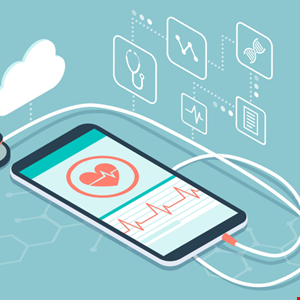In a bid to counter cyber-attacks targeting the US healthcare system, the Advanced Research Projects Agency for Health (ARPA-H), operating under the Biden-Harris Administration’s initiative, has unveiled the Digital Health Security (DIGIHEALS) project.
Through a comprehensive Broad Agency Announcement (BAA), the DIGIHEALS project will call for proposals for state-of-the-art technologies initially designed for national security purposes. These technologies will be repurposed to fortify civilian health systems, clinical care establishments and personal health devices.
“The DIGIHEALS project comes when the US healthcare system urgently requires rigorous cybersecurity capabilities to protect patient privacy, safety and lives,” commented Dr Renee Wegrzyn, director of ARPA-H.
“Currently, off-the-shelf software tools fall short in detecting emerging cyber-threats and protecting our medical facilities, resulting in a technical gap we seek to bridge with this initiative.”
By curbing the potential for large-scale cyber-attacks, DIGIHEALS aims to mitigate the devastating impact such attacks can have on medical facilities, some of which have been forced to shut down permanently.
Read more on healthcare-focused cyber-attacks: Thirty-three US Hospitals Hit By Ransomware This Year
In addition to its cybersecurity objectives, the DIGIHEALS project is also committed to addressing software-related vulnerabilities that could jeopardize patient safety and overall experience.
“By adapting and extending security, usability and software assurance technologies, this digital health security effort will play a crucial role in addressing vulnerabilities in health systems,” explained ARPA-H program manager, Andrew Carney.
“This project will also help us identify technical limitations of future technology deployments and contribute to the development of new innovations in digital security to better keep our health systems and patients’ information secure.”
According to Approov CEO, Ted Miracco, the initiative is a significant effort coming at the right time.
“Andrew Carney is absolutely correct in identifying the resource limitations and budgets as a prime factor to address, and we are optimistic that rapid improvements can be made by deploying both existing technologies more broadly and sharing information rapidly when new threats emerge,” Miracco said.
“Many of the recent attacks are not new, so a component of the solution must be better information sharing across the complex healthcare ecosystem.”
The project is inviting proposals under the Scaling Health Applications Research for Everyone (SHARE) BAA. Multiple awards are expected within the DIGIHEALS focus domain, contingent on the quality of received proposals and fund availability.
Credit: Source link


Comments are closed.